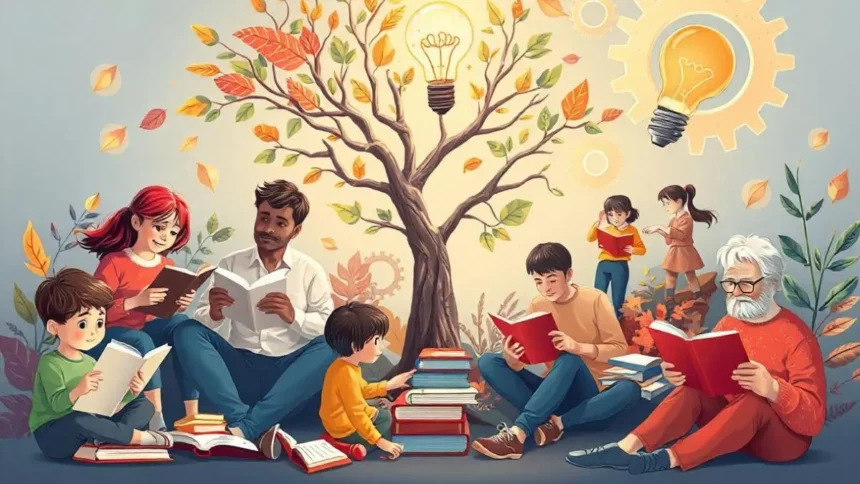In a rapidly evolving world, the ability to adapt and learn is more critical than ever. Lifelong learning isn’t just about acquiring new skills; it’s a mindset that encourages growth throughout life. Whether you’re a young adult entering the workforce or a senior seeking enrichment, the journey to keep growing has no age limit.
The Importance of Lifelong Learning
1. Why Lifelong Learning Matters
The world changes at an unprecedented pace, making it essential to update our knowledge and skills. Continuous learning helps individuals stay relevant, adapt to challenges, and seize opportunities.
2. Lifelong Learning Across Generations
- Young Adults: Enhance career readiness and build a strong foundation for success.
- Mid-Career Professionals: Adapt to industry changes and pursue professional development.
- Seniors: Foster mental acuity and enrich life experiences.
Benefits of Lifelong Learning
1. Intellectual Growth
Learning stimulates the brain, improves cognitive function, and reduces the risk of cognitive decline.
2. Personal Development
Engaging in self-improvement activities, such as learning a new language or hobby, enhances self-esteem and personal satisfaction.
3. Professional Growth
Acquiring new skills boosts career prospects, fosters adaptability, and enhances job performance.
Strategies for Lifelong Learning
1. Adopt a Growth Mindset
A growth mindset is the belief that abilities can be developed through dedication and hard work. Embracing challenges as opportunities to learn is key.
2. Explore Diverse Learning Opportunities
- Formal Education: Enroll in courses or pursue higher education.
- Online Learning: Platforms like Coursera and Udemy offer flexible options for self-paced learning.
- Workshops and Seminars: Ideal for skill-building and networking.
3. Create a Learning Routine
Dedicate specific times for learning, such as reading before bed or attending weekly classes. Consistency builds habits.
Practical Ways to Keep Growing at Any Age
1. Build Lifelong Skills
Focus on skills that are universally valuable, such as critical thinking, communication, and emotional intelligence.
2. Embrace Technology
Leverage apps, e-books, and online tools to access learning opportunities anytime, anywhere.
3. Stay Curious
Curiosity is the engine of lifelong learning. Ask questions, seek new experiences, and stay open to different perspectives.
Overcoming Challenges in Lifelong Learning
1. Lack of Time
Incorporate learning into daily life through microlearning—short bursts of focused study.
2. Financial Constraints
Take advantage of free resources such as public libraries, open educational platforms, and community programs.
3. Motivation to Learn
Set clear goals and track progress to stay motivated and engaged.
The Role of Lifelong Learning in Personal and Professional Success
1. Education at Any Age
Lifelong learning ensures that knowledge expansion doesn’t stop after formal education. It fosters adaptability in an ever-changing world.
2. Lifelong Learning in the Workplace
Employers value employees who actively pursue professional development and demonstrate a commitment to growth.
Cultivating a Culture of Lifelong Learning
1. Encouraging Lifelong Learning in Families
Parents can model a love of learning for their children by reading, discussing ideas, and engaging in educational activities together.
2. Promoting Learning in Communities
Community organizations can offer programs that make education accessible to all age groups.
3. Businesses Supporting Employee Growth
Companies can foster a learning culture by providing training programs and incentives for continued education.
The Future of Lifelong Learning
1. Technological Advances in Learning
AI and virtual reality are making education more interactive and tailored to individual needs.
2. The Global Demand for Lifelong Learning
As industries evolve, the demand for versatile, skilled individuals who prioritize personal development will increase.
Conclusion
Lifelong learning is an empowering journey that allows individuals to keep growing intellectually, personally, and professionally. By embracing a growth mindset, exploring diverse learning opportunities, and staying curious, anyone can thrive at any stage of life. Lifelong learning is not just an option but a necessity for navigating the complexities of the modern world.







